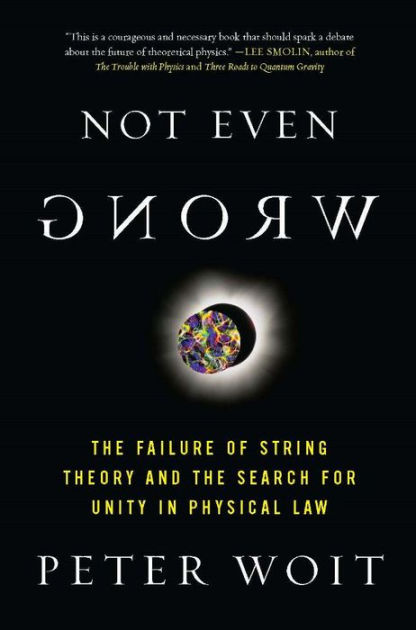


Either through willful ignorance, or at best by being out of date with current research, they don't know enough about the subject to know what is needed to form a sensible argument. For instance, a conspiracy theorist talking about people slipping "ionised radio waves" into someone's coffee - no one who knows anything on the subject could even think of a way that only one or two small misconceptions could lead to that, it really is not even wrong. Most commonly, not even wrong arguments arise because of a lack of understanding in the person making the argument. Bad science or pseudoscience either can be refuted with known facts, or at least raises intelligible questions that can then be addressed the most interesting question that not even wrong can raise is What is this person on? and perhaps Where can I get some, because it might help me make sense of this? The premises, their arrangements, the conclusion, all are so divorced from facts and logic that even attempting to rationally engage with it gives it too much credit. In a way, a "not even wrong" argument is often an extreme non sequitur - such as by the homeopaths who claim that observations (later debunked as a measurement error by the scientists who made them in the first place) of neutrinos breaking the speed of light meant that all science was wrong and therefore homeopathy works. The premises aren't even related to the conclusion or are themselves completely nonsensical. This is far more than just an argument leading to a wrong conclusion. Examples include so-called creationist escape hatches, which are a series of irrefutable (but equally unprovable) claims that defy correction with conventional logic. The term has since gathered some popularity, amongst those involved in refuting pseudoscience, to reference the difficulties faced in dealing with some of the more out-of-this-world arguments. Pauli was known for his detestation of sloppy writing and arguments, and for his somewhat "colourful" objections to such things. The phrase apparently originates with physicist Wolfgang Pauli, who used the phrase (in the form "Das ist nicht nur nicht richtig, es ist nicht einmal falsch!" - "That is not only not right, it is not even wrong!") to describe an unclear research paper. I award you no points, and may God have mercy on your soul.

Everyone in this room is now dumber for having listened to it.

At no point in your rambling, incoherent response were you even close to anything that could be considered a rational thought. “ ”What you've just said is one of the most insanely idiotic things I have ever heard.


 0 kommentar(er)
0 kommentar(er)
